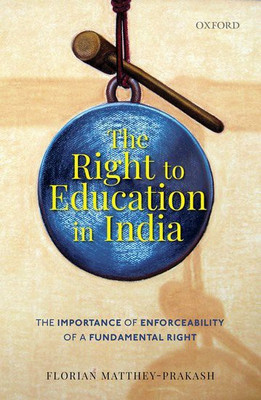The Right to Education in India(English, Hardcover, Matthey-Prakash Florian)
Quick Overview
Product Price Comparison
What does it mean for education to be a fundamental right, and how may children benefit from it? Surprisingly, even when the right to education was added to the Indian Constitution as Article 21A, this question received barely any attention. This book identifies justiciability (or, more broadly, enforceability) as the most important feature of Article 21A, meaning that children and their parents must be provided with means to effectively claim their right from the state. Otherwise, it would remain a "right" only on paper. The book highlights how lack of access to the Indian judiciary means that the constitutional promise of justiciability is unfulfilled, particularly so because the poor, who cannot afford quality private education for their children, must be the main beneficiaries of the right. It then deals with possible alternative means the state may provide for the poor to claim the benefits under Article 21A, and identifies the grievance redress mechanism created by the Right to Education Act as a potential system of enforcement. Even though this system is found to be deficient, the book concludes with an optimistic outlook, hoping that rights advocates may, in the future, focus on improving such mechanisms for legal empowerment.


